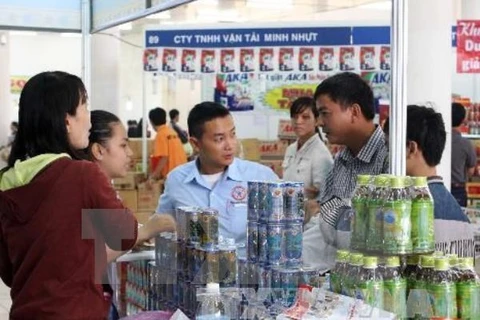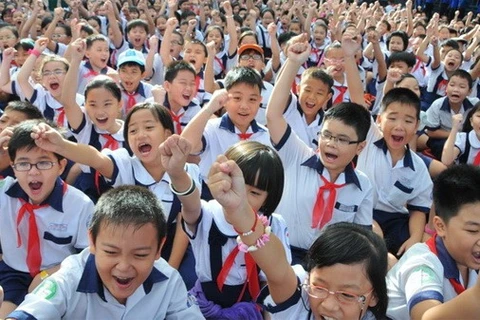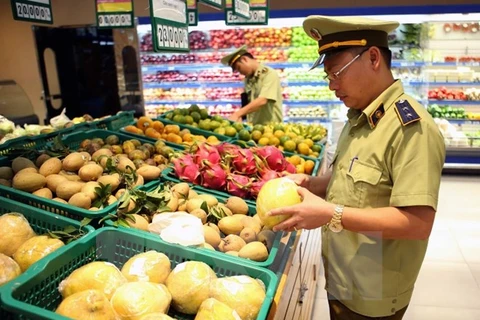 The Ministry of Finance is proposing to levy a special consumption tax of 10 percent on sweet drinks to combat child - and adult - obesity rates. (Photo: dantri.com.v)
The Ministry of Finance is proposing to levy a special consumption tax of 10 percent on sweet drinks to combat child - and adult - obesity rates. (Photo: dantri.com.v) Hanoi (VNA/VNS) - The Ministry of Finance is proposing to levy a special consumption tax of 10 percent on sweet drinks to combat child and adult obesity rates, a problem worrying Government and health experts. However, many business people disagree with the proposal.
The special consumption tax proposal on sweet drinks is a part of a ministry proposal to revise five tax laws, including a value-added tax (VAT), special consumption tax, corporate income tax, personal income tax, and natural resources protection tax.
In August last year, the ministry issued a proposal to place excise tax on sweetened beverages. This time, the authority announced that the excise tax rate would be 10 percent - in addition to 12 percent VAT.
This would mean that all sweetened beverages, regardless of whether they are soft drinks, tea, coffee or energy drinks, will be subject to the excise tax. However, dairy products will be excluded.
The ministry’s first proposal three years ago set the excise tax at 10 percent only on carbonated drinks.
It said the adult obesity rate in Vietnam affected 25 percent of the population. For children under five years of age, the obesity rate had increased rapidly from 0.6 percent in 2000 to 5.3 percent in 2015, while the rate in HCM City had increased to 10.8 percent - and 12 percent in the downtown area.
This means that the obesity rate in Vietnam is higher than the average rate in the Asian region and developing countries (the current global obesity rate is at 6.9 percent).
Meanwhile, based on information from the World Health Organisation (WHO), sweetened beverages are said to have a negative impact on health. To restrict the use of sweetened beverages, 40 countries have already imposed special taxes on them.
The ministry said obesity rates among children under five years old were increasing rapidly, putting them at risk of cardiovascular disease, hypertension, stroke, atherosclerosis, and other ailments.
In Thailand, non-alcoholic carbonated soft drinks are subject to a tax rate of between 20 and 25 percent. Laos imposes 5 to 10 percent tax on soft drinks, and Cambodia 10 percent.
While the new tax will create revenue of nearly 5 trillion VND (220 million USD) for State funds, the proposal has encountered opposition from ministries and business associations, saying the plan should not include tea and coffee products.
The Ministry of Industry and Trade and the Ministry of Agriculture and Rural Development said tea and coffee, which were sugar-free beverages, were included in the list of sweetened beverages, while milk products were excluded, suggesting that the Ministry of Finance carefully consider the new proposal and its effects.
Adam Sitkoff, director of the American Chamber of Commerce told Vietnam News the imposition of excise taxes on sweetened drinks was uncommon and ill-advised.
He claimed that only four countries in the Asia-Pacific region imposed excise taxes on sweetened beverages.
Herbert Cochran, director of the Vietnam Trade Facilitation Alliance, said the imposition of the special consumption tax would only create discrimination in the food and beverage industry.
“Studies indicate that various factors, such as unhealthy diets and inactive lifestyles, contribute to health problems, including diabetes and obesity. Taxing sweet beverage may not help reduce or prevent the problems," he said.
“Critics may question why other food and beverage with high sugar are not subject to the tax.”
He said small and medium enterprises would be hurt the most and might have to close down, since the price of beverage products would rise by about 12 percent, slashing sales.-VNA/VNS
VNA























